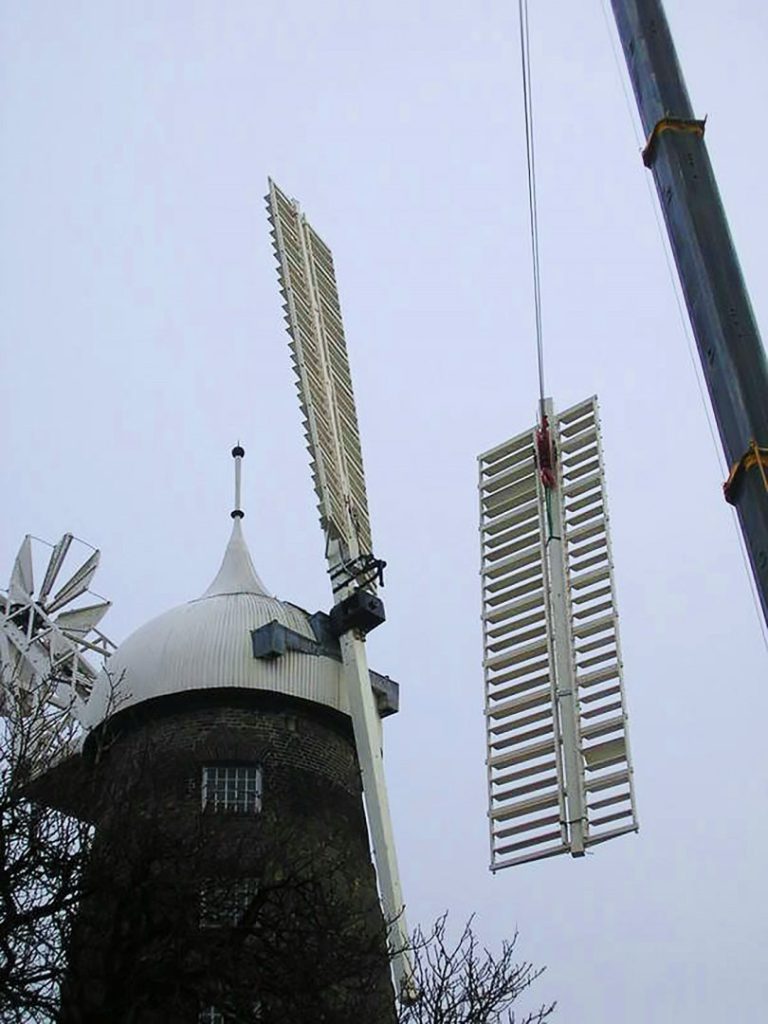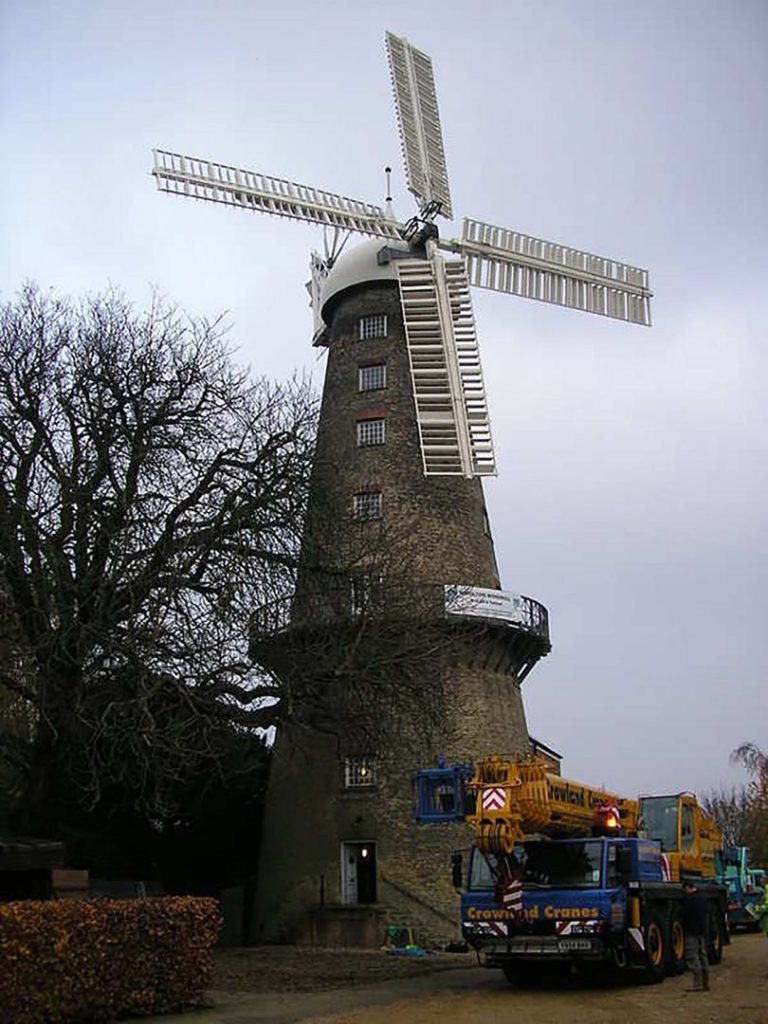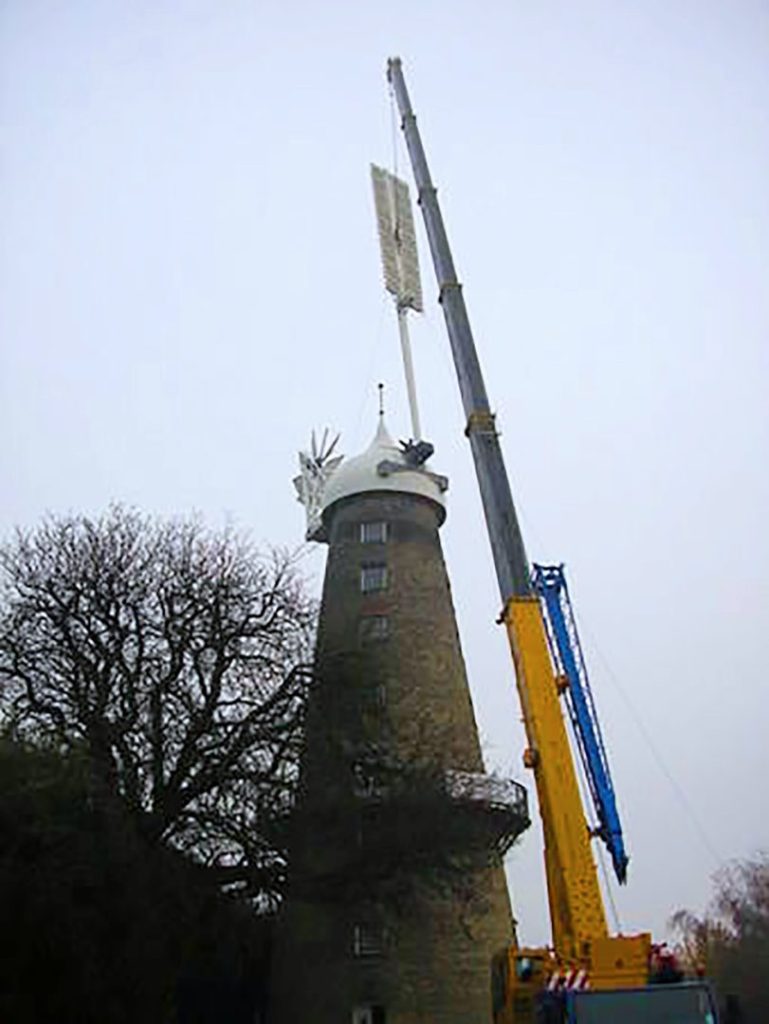A decade on, ECS remembers Moulton Windmill blades fabrication
The £2m community restoration of Moulton Mill returned one the UK’s largest mills to its former glory. On the ten-year anniversary of the project, ECS Engineering Services recalled its involvement. ECS’ fabrication department produced new steel blades for the mill, allowing the site to deliver its first flour ground by wind power for nearly 120 years.
Built in 1822 by Robert King, Moulton Mill utilised wind power to grind flour until 1894, when a large storm caused damage to its sails. They were subsequently removed in 1895 and replaced with a steam system. At the time, nobody would’ve guessed that it would take until 2013 for Moulton Mill to run on wind power again.
Moulton Mill’s modern regeneration has been enabled thanks to Moulton community volunteers. Over the course of 14 years, funding was secured to rejuvenate the mill and return it to original working order. A key aspect of this large project was the design, fabrication and installation of the new windmill blades. Taking inspiration from existing Dutch windmills, a specialist millwright drew up the new design and ECS was approached to carry out the complex fabrication of the blades themselves.
Steve Crapper, Precontract Director at ECS, knew the fabrications team was up to the task: “We specialise in delivering large scale fabrications for the water, power and utilities sectors – so we had the required capacity to fabricate the sizable blades. It was important to produce blades that exactly matched the required design, so that the historic significance of this Grade I listed building could be properly preserved.”
ECS’ fabrications department began by creating a 3D CAD model of the blades. This allowed for the overall weight of the design to be ascertained and detailed fabrications drawings to be produced. Dimensions were then transferred to CNC machines so the profiles that formed the blades could be laser cut with high accuracy.
Steve describes the fabrications process: “In essence we created a skeleton onto which the wooden sails could be installed later. We fabricated the blades from the profiled plates, which were welded together to form a continuous section measuring 2 m either side of the central mounting boss. The blades themselves tapered down in profile from near the centre to a smaller rectangular cross section at each end. Plate thickness also reduced down the length of the blade, minimising weight and ensuring an efficient design.”
The end result was a form of bulkhead featuring multiple internal stiffeners and plates of differing thickness butt welded together. Fillet welding was utilised for the outer edges, carefully dressed at the corners.
“We are currently accredited to carry out CE marked steel fabrications to EXC 4 as part of BS EN 1090-2, but to ensure the absolute integrity of the welds, we carried out testing with our specialist non-destructive testing (NDT) engineers. This proved structural integrity and equivalent strength to the parent materials,” Steve explains.
Post fabrication work was also extensive. A hot dip galvanising process, combined with stress relieving the blades, ensured that the inner and outer surfaces were adequately protected without an undue risk of distortion. Once complete, an etch primer was added and a high-quality white paint finish. This would deliver a long-lasting, attractive aesthetic with added corrosion protection.
The completed blades were delivered to an experienced millwright, where wooden sails were added to finish the design. The end result was a set of blades that matched the classic aesthetic of the original mill, but featured modern fabrication techniques to ensure a long service life.
The fitment of the blades to the 100 ft high mill completed the restoration project. On April 28th 2013, the first bag of flour ground by the wind for 120 years was collected from the stones at Moulton Mill. The site is now a tourist hotspot, featuring a tea room, a shop, conference and meeting rooms.
Steve concludes: “While many would assume that our fabrications department would focus solely on supporting modern infrastructure, our extensive capacity, state-of-the-art equipment and talented operatives means we can take on landmark heritage projects such as this too.”








